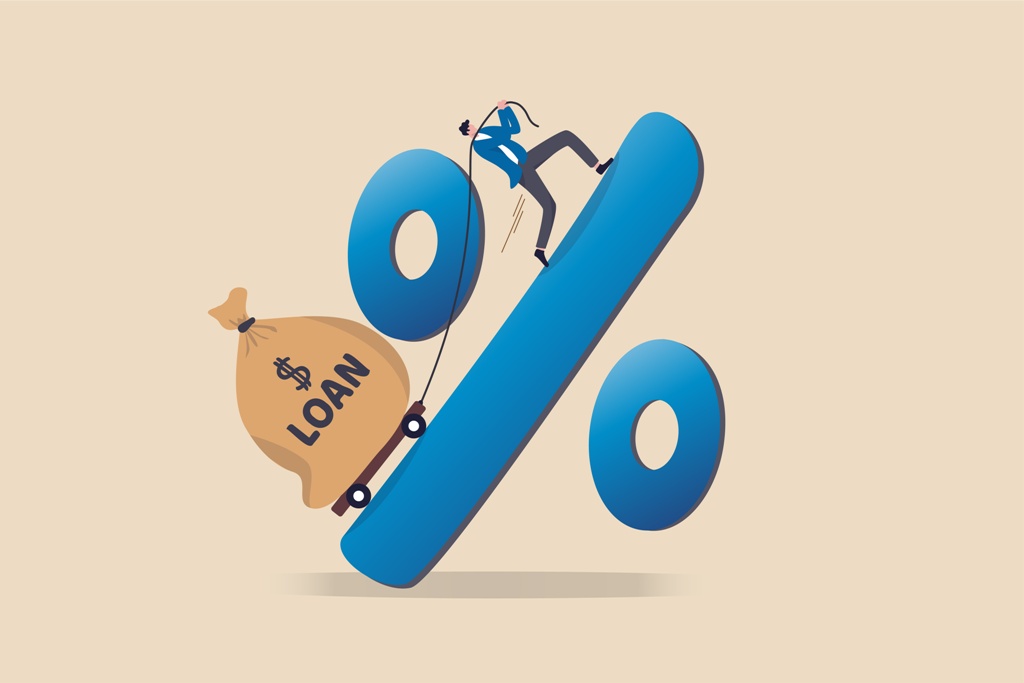When it comes to loans, one of the most important components that people pay attention to is the interest rate. As it stands, interest is the cost of borrowing. This rings true no matter if you’re talking about Singapore’s licensed money lender interest rates or bank interest rates.
There are several criteria that lenders take into consideration when deciding on the interest rate befitting an individual. An applicant’s financial standing, level of debt, employment status, and recent financial history all affect the interest rates on a loan.
Before applying for a loan, you should also consider if a loan from a bank or licensed private money lender is the better option for you. If you are facing financial problems, the right loan for you can help you ride through the rough period.
Without further ado, let’s dive in and learn more about bank and licensed money lender interest rates in Singapore, how bank and money lender interest rates are computed, the allowable licensed money lender interest rates, private money lending rate caps, etc.
Why should you compare bank & licensed money lender interest rates in Singapore?
In short, to ensure you’re getting the best bang for your buck.
Understand that interest rates on a loan vary by type of lender, the type of loan (personal, business, consolidation, etc.), loan term (minimum repayment period), and other factors. Savvy borrowers also keep track of cyclic trends in interest rates, which can be used to predict when the figure will rise or fall.
Keep in mind, what seems like just a small difference of 0.1% can make a difference over the course of the loan.
Singapore licensed money lenders’ interest rates
What’s the legal licensed money lender interest rate range in Singapore?
It typically ranges around 1-4% monthly and the Ministry of Law has capped it at 4% for both unsecured and secured personal loans.
What’s the legal licensed money lender late interest rate cap in Singapore?
A licensed lender can charge borrowers a late interest rate of 4% monthly maximum on overdue unsettled payments.
While not all lenders impose the maximum late interest rate of 4% monthly on late payments, it is still best practice to be prudent — be prompt in all your repayments to avoid chalking up additional debt!
What are some factors that affect the licensed money lender interest rate offered?
Below, you’ll find the key factors that contribute to the private money lending rates offered:
- Credit history — as per the existing and most recent financial background of the borrower as seen in their Loan Information Report
- Income — having a higher salary generally translates into a potentially lower-risk borrower
- Credit utilisation with other loan providers — each individual has a debt limit; the closer one is to that limit, the riskier they are perceived to be, hence the higher their interest rates potentially
How are money lenders’ interest rates calculated?
Private money lenders do not implement the flat rate method when calculating interest; they use the reducing balance method instead, where interest is applied on the principal balance.
While it is much more straightforward to calculate interest with a flat rate, using the reducing balance method is more cost-saving when all else is constant.
Refer to the example below where a borrower takes a $5,000 loan to be repaid in 4 months.
With 1% p.a. flat interest rate calculation
- Payment 1 — Outstanding balance: $3,750; Interest: $4.17; Instalment paid: $1,254.17
- Payment 2 — Outstanding balance: $2,500; Interest: $4.17; Instalment paid: $1,254.17
- Payment 3 — Outstanding balance: $1,250; Interest: $4.17; Instalment paid: $1,254.17
- Payment 4 — Outstanding balance: $0; Interest: $4.17; Instalment paid: $1,254.17
The total amount paid over the course of 4 months is $5,016.67.
With 1% p.a. reducing balance calculation
- Payment 1 — Outstanding balance: $3,751.56; Interest: $4.17; Instalment paid: $1,252.61
- Payment 2 — Outstanding balance: $2,502.07; Interest: $3.13; Instalment paid: $1,252.61
- Payment 3 — Outstanding balance: $1,251.55; Interest: $2.09; Instalment paid: $1,252.61
- Payment 4 — Outstanding balance: $0; Interest: $1.04; Instalment paid: $1,252.59
The total amount paid over the course of 4 months is $5,010.42.
All else equal, the borrower would have paid almost 60% more interest using the flat rate method.
What are the other fees chargeable by money lenders?
Legal lenders may also impose a late repayment penalty fee, capped at $60 per month. The late repayment penalty fee will kick in for each month of late repayment recorded.
A processing fee is typically also imposed when a borrower takes up the loan. This processing fee is capped at a maximum of 10% of the loan principal.
Some may not be aware, but legal lenders can also charge all court-ordered legal fees associated with debt recovery if the court grants the lender the right to claim these fees in the event the lender takes the borrower to court due to the non-payment of debts by borrowers.
What are the interest rates charged by banks?
Banks’ interest rates on personal loans typically vary from 1.90% to 5.42% annually on paper, as of time of writing. After including fixed charges, processing fees and other miscellaneous charges, this figure could easily rise to something as high as around 14% per annum.
As with loans from licensed lenders, don’t just look at the advertised rates; always keep the fine print in mind, too. It is always a good idea to pay attention to the effective interest rate (EIR).
Effective interest rate (EIR)
The EIR takes other costs like administrative charges and processing fees into consideration. Through EIR, you’ll get a clearer idea of the cost of the loan, as compared to only referring to the often enticing advertised rates.
Remember that the repayment frequency and number of instalments also affect the total amount to be repaid. More often than not, the higher the number of instalments and longer the loan tenure, the more interest you’ll chalk up overall.
Factors to bear in mind before taking out a loan
Taking out a loan can be one way to address your financial needs promptly and manageably if used wisely. If not, it can turn into a mountain of financial worries instead. Always stay well-informed of a loan’s additional costs:
- Overdue payment interest rates and penalties
- Processing or administrative charges
Other things to keep in mind include:
Credit history
Banks don’t typically offer loans to individuals with a poor credit history.. They’ll look at your credit score and credit report at the Credit Bureau Singapore.
Money lenders do not usually consider this rating before extending a loan. Instead, they’ll look at your credit history and loan eligibility as per your Loan Information Report at the Moneylenders Credit Bureau.
While money lenders are quite lenient when it comes to this, note that they are generally more expensive. So, if you’re able to, try applying for a bank loan first.
Lender’s credibility
Every money lender is different; some may provide more flexibility and more attractive terms, and these are some things you might want to look out for. Make sure adequate research is done so you’ll choose the right lender.
Looking for competitive licensed money lender interest rates?
The truth is, not everyone can qualify for bank loans no matter how much they wish they can enjoy the relatively lower interest rates and longer loan tenures.
If you are in search of a legal financing alternative, definitely consider obtaining a loan from a reputable authorised lender like 96bm Credit. We’re a legitimate loan company in Singapore with proven track records of speedy loan approvals within 15 minutes and top-notch customer service. Of course, we strive to provide all our customers with transparent and fair money lender interest rates.
How to get started? Simply apply now on our secure website or visit us at our Ubi office. Our friendly loan consultants will be around to provide you with all the information and assistance you need.
About the Author

Hello! I’m Nikki and I nitpick through all the boring financial data and jargon so you don’t have to!






